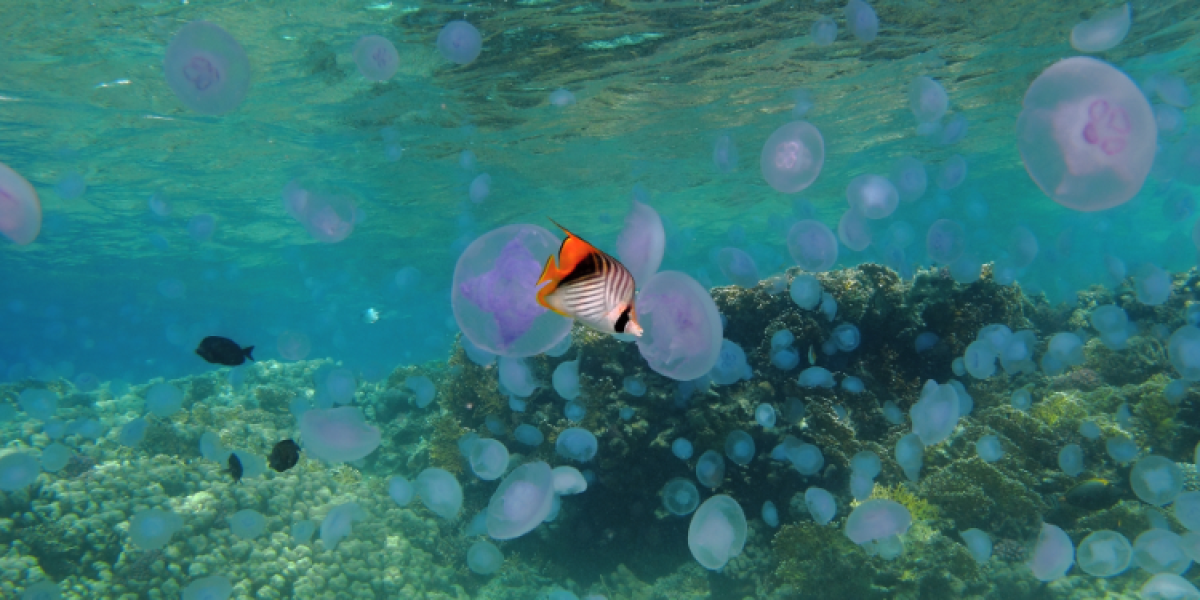
While jellyfish are usually found in the open ocean, with the warm temperatures and bad weather, Mauritian lagoons have become havens for these creatures. Jellyfish are as captivating as they cause concern. Here's what you should know about jellyfish.
How to identify a jellyfish sting?
Not all jellyfish are harmful! Some, like the upside-down Cassiopeia, pose no threat, while others can cause more severe reactions. In Mauritius, it's crucial to be cautious of the nearly invisible box jellyfish, whose venom is deadly. There's also the Physalia, also known as the Portuguese Galley. Despite its appearance, this floating mass of blue gelatin is a jellyfish species, complete with a long tentacle that releases potent venom upon contact with humans.
The pain experienced after a sting varies depending on the species, ranging from a tingling sensation to intense burning. Thread-like marks on the skin, resembling whip marks, indicate a jellyfish tentacle sting. This is often followed by itching, redness, blistering, and a burning, swelling sensation. Severe allergic reactions, such as difficulty breathing, nausea, or significant swelling, require immediate medical attention.
What to do if you get stung?
If stung, exit the water promptly to avoid further contact with the jellyfish's tentacles. Crucially, do not rub the affected area, as this could release more venom. Instead, rub a bit of dry sand into the wound and then use vinegar to gently rinse it off. In the absence of vinegar, seawater can be used.
Applying heat can help alleviate post-sting pain. Use a warm compress or soak the affected area in hot water, ensuring the temperature is not excessively high. If symptoms persist or if the jellyfish is potentially dangerous, seek medical attention promptly.
Be wary of fake news
Contrary to common belief, urine and fresh water can worsen pain by releasing more venom. It is essential to use only seawater or vinegar to avoid infecting the wound.
What you should avoid
When swimming, wear water shoes to protect your feet, and stay aware of your surroundings. Avoid areas with reported jellyfish sightings, typically in the north of the island. Be cautious of dead jellyfish on beaches, as they can still cause stings!



















